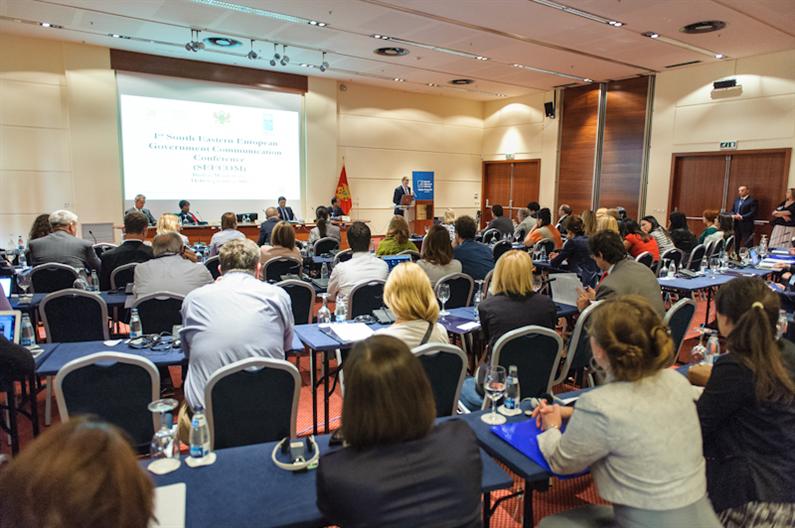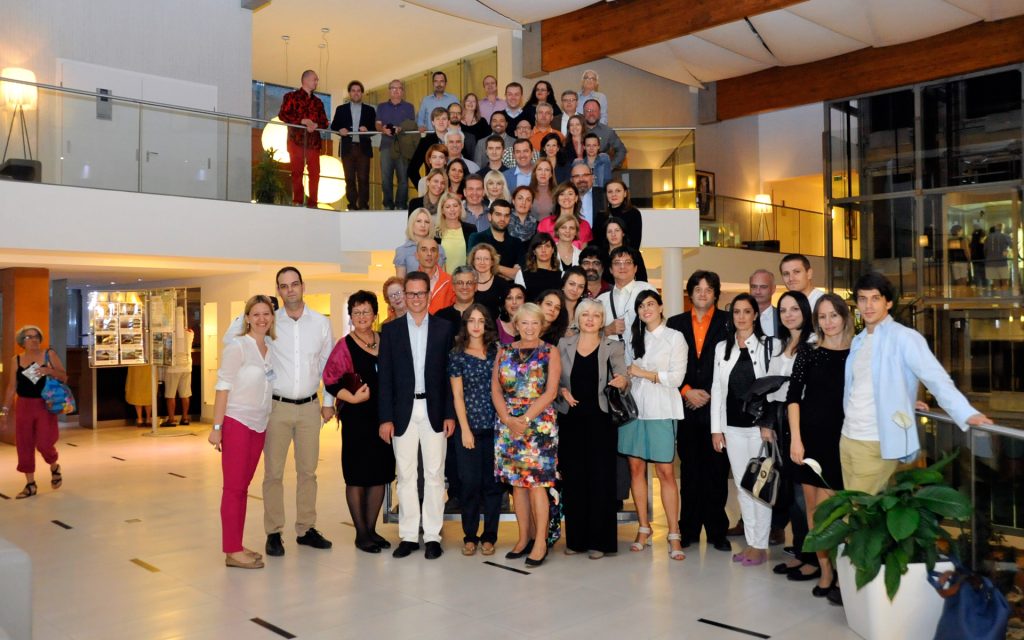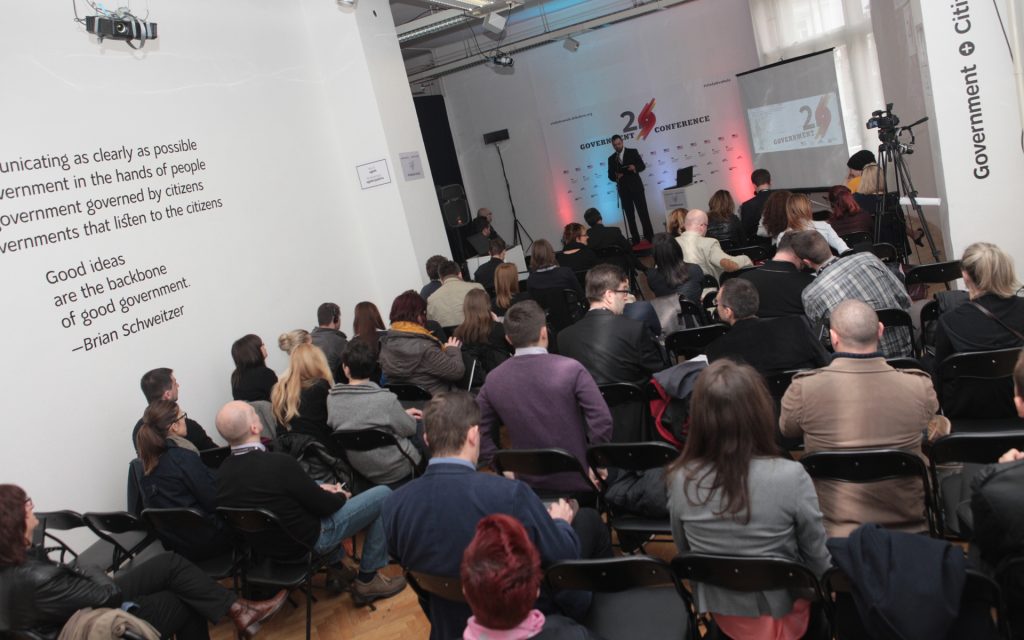Government communicators in SEE agree on core professional and ethical principles of their profession, enshrined in the Budva Declaration
1st South Eastern European Government Communications Conference

The 1st South Eastern European Government Communication Conference (SEECOM) took place in Budva, Montenegro, on 14-16 September 2012.
The event brought together top government communication officials from 9 countries of South Eastern Europe and some of the leading government communication experts from Europe and the United States, with a view to exchanging experiences and best government communication practices.
Participants in the Conference adopted the Budva Declaration, Europe’s first transnational declaration of core professional and ethical principles of government communication andestablished SEECOM, as a regional professional forum for government communications.
The 1st SEECOM conference was organised by the Government of Montenegro, United Nations Development Programme in Montenegro and Konrad Adenauer Stiftung Media Programme for South East Europe.
Welcome notes were delivered by then Prime Minister of Montenegro Igor Lukšić, US Ambassador to Montenegro Sue K. Brown, UN Resident Coordinator Rastislav Vrbensky and Head of the Konrad Adenauer Stiftung Office for Serbia and Montenegro Henri-Giscard Bohnet.
SEECOM gains momentum and grows into region’s first professional association for public sector communications
2nd South Eastern European Government Communications Conference

The 2nd South Eastern European Government Communication Conference (SEECOM2013) took place in Budva, Montenegro, on 27-29 September 2013, bringing together top government communicators from 13 countries of the region.
In addition to government communicators from the region, the conference participants included senior government officials, international dignitaries and prominent government communication experts from Europe and the United States.
The variety of conference topics included government communications as public service, optimising public communication resources, using modern technology to improve two-way communication and encourage citizen participation, social media, communicating EU affairs, effective presentation of policies, and regional cooperation.
The conference adopted the Statute of SEECOM, establishing SEECOM a non-for-profit professional association of public sector communicators in South East Europe, based in Budva, Montenegro.
SEECOM2013 was organised by the Government of Montenegro, in cooperation with the US Embassy in Podgorica, Konrad Adenauer Stiftung Media Programme South East Europe,Regional Cooperation Council (RCC) and UNDP Montenegro
SEECOM reaches out to civil society partners
Government 2.0 Conference

The 1st South Eastern European Government Communication Conference (SEECOM) took place in Budva, Montenegro, on 14-16 September 2012.
The event brought together top government communication officials from 9 countries of South Eastern Europe and some of the leading government communication experts from Europe and the United States, with a view to exchanging experiences and best government communication practices.
Participants in the Conference adopted the Budva Declaration, Europe’s first transnational declaration of core professional and ethical principles of government communication andestablished SEECOM, as a regional professional forum for government communications.
The 1st SEECOM conference was organised by the Government of Montenegro, United Nations Development Programme in Montenegro and Konrad Adenauer Stiftung Media Programme for South East Europe.
Welcome notes were delivered by then Prime Minister of Montenegro Igor Lukšić, US Ambassador to Montenegro Sue K. Brown, UN Resident Coordinator Rastislav Vrbensky and Head of the Konrad Adenauer Stiftung Office for Serbia and Montenegro Henri-Giscard Bohnet.
